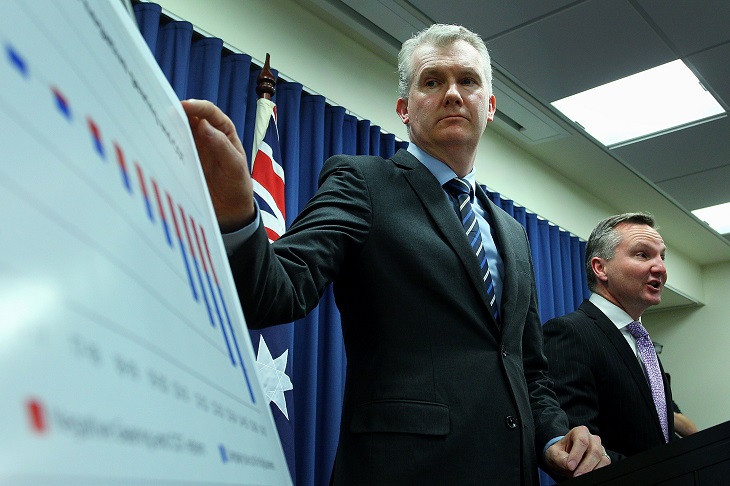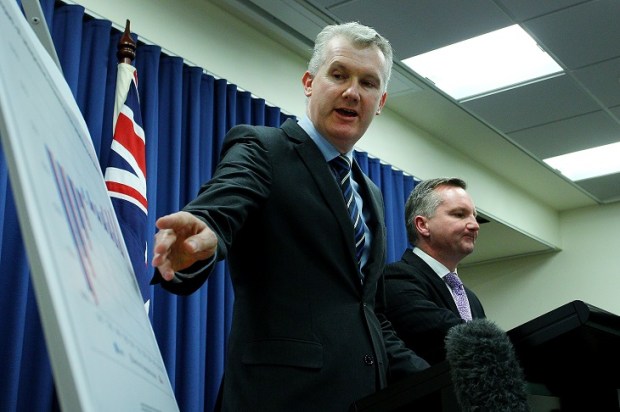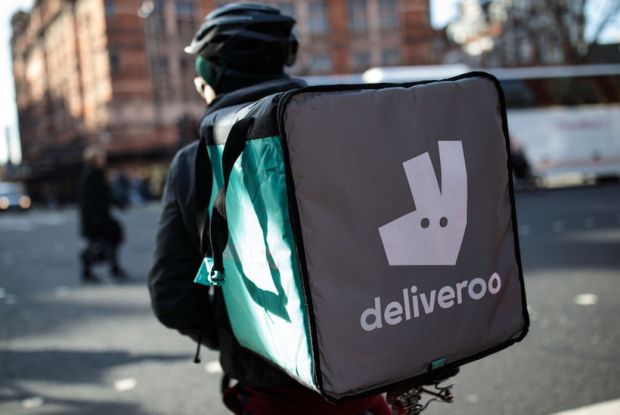If you’ve ever been to a pub gig, you’ll have taken part in what the Albanese government wants to (effectively) close down. The Albanese agenda became starkly clear in 2022 after Workplace Relations Minister Tony Burke declared the ‘gig economy’ is a ‘cancer’. Burke stated that it’s an agenda not open to discussion, and that legislation will be introduced in late 2023.
The gig economy is not something new. The Beatles, The Stones, Cold Chisel, AC/DC … they all did and/or do ‘gigs’. Like countless musicians, stand-up comedians, crooners, harpists, you name them, they all do gigs. It’s the lifeblood of the entertainment industry locally and globally.
And gig makes for some disparate traditional bed partners. Yes, every barrister is a gig worker. So too is each sex worker!
A gig is pretty simple. There’s a contract for a set price to do something. ‘Come to my pub. Play for three hours and I’ll pay you a thousand bucks,’ says the pub manager. ‘Done,’ says the singer. The singing done and the money paid. End of contract.
Every barrister is required to give an upfront estimate of costs to each client. Yes the specifics of each job can’t be precisely determined but the broad parameters are set. As work unfolds and if/when the work moves beyond those parameters, a renewed costs estimate must be given to the client. When the jobs done, the money is paid.
Sex workers have control over what they do. This is actually stipulated in relevant prostitution control laws. Every job(gig) has a pre-agreed price for pre-agreed services.
Gig work is not new, odd, or threatening. In fact it is very traditional and ‘old’.
But somehow, for the Albanese government, this is a ‘cancer’.
What’s happened over the last 15 years or so is that this familiar entertainment and other industry ‘gig’ model has taken new forms. Now gig work is available for ride-share, food delivery, aged and disability care, and odd jobs. The list goes on. And, yes, the entertainment industry has gig platforms.
What’s happened is that online technology has made gig work more secure. Gig platforms enable anyone wanting to do a job to connect with someone needing a job done. The revolution is that job specifics and price are upfront and agreed by the parties. The gig platforms also make the payments and enable both the ‘doer’ and the ‘receiver’ of the service to rate each other. The platforms make the market work efficiently, transparently, and securely.
It’s fantastic. The risk of not being paid is massively reduced. Think of how many times a pub manager has failed to pay the full amount agreed upon, screwing over the worker (singer)? It’s the security of payment and security and clarity of the gig work agreement that’s made this expansion of gig work so seemingly popular. And it’s all happened without government sticking its nose in!
Yet this is a cancer? So here comes the Albanese government promising to mess it all up. How do they say they are going to do this?
Put simply, Minister Burke is going to create laws that will require gig workers to have holiday pay for example. How will this work? Let’s take our pub gig as an example.
The pub manager will have to pay holiday pay on top of the $1,000 agreed. How is this to be calculated? Holiday pay is for full-time employees who’ve worked a full year. How is this to be calculated for 3 hours work and no more? Ouch! That has heads scratching! But let’s say it’s $70. It’s clear what will happen. The pub manager will only agree to $930 for the gig. $70 will have to be held back.
But when does the gig singer get the $70? Does the singer determine when it’s ‘holiday’ time or does the pub manager decide? Sounds like a recipe for scamming! So, will Albanese then set up a massive new government-run department to manage gig workers’ holiday pay? Or maybe the entertainment union will be sanctioned to run a ‘holiday’ fund. Will the singer need to apply to the government or the union for the $70?
Just think. Will barristers suddenly become ‘entitled’ to holiday pay? What about sex workers? The mind boggles. Who’s going to pay? Who’s going to manage the holiday pay accounts? It’s a recipe for a mess.
We know this will be a mess because this is what’s happened in the UK. Old 1996 UK laws were used in 2021 to declare that UK Uber drivers are ‘entitled’ to holiday pay. Uber are trying to work out how to adjust prices and to manage this. When does Uber pay holiday pay to an Uber driver? When Uber decides or the driver?
And in the UK it’s impacted tax issues resulting in a rolling saga of court cases, distorted tax liabilities, and more, under the general heading of ‘status’ dramas. (See Spectator 5 June 2023)
But there’s more. Research from the Victorian government into the gig economy (2020) shows that around 830,000 Australians did gig platform work in any year. But only 0.19 per cent of the workforce used gig for their full-time work. In other words, around 810,000 Australians (about 7 per cent of the workforce) were only using gig work as part-time top-up work. How is gig holiday pay to be calculated for all these part-timers?
In the government’s recent Consultation Paper on the issue, they flagged that they’ll limit the laws but weren’t specific. It’s perhaps predictable that the government will apply its version of ‘common sense’ and keep barristers, entertainers, sex workers, and more out of the measures. However, so far they’ve been vague about who’s in and who’s out!
And their ‘limiting’ assurances are weak because for their agenda to work the legislative structure will require treating a commercial contract as an employment contract. I’ve explained this before in Spectator Australia. The ‘limiting’ problem is, that once this contract threshold is crossed (treating a commercial contract as an employment contract) ‘limits’ become impossible to contain.
This is demonstrated in California. In 2020 California (incredibly) made illegal the use of self-employed people. But politically powerful self-employed groups had themselves excluded. Powerful people such as lawyers, movie directors, financiers, and others had themselves put outside the law, for now. But such exclusions are entirely politically dependent. Over time such exclusions become corrupted by the political process. Inevitably, like a cancer, the contract corruption encroaches into areas thought safe from such corruption.
This is the real cancer that should be of concern. In their determination to proceed with their gig economy agenda, the Albanese/Burke government will introduce cancer into Australia’s commercial contract process.
Ken Phillips is Executive Director of Self Employed Australia and is on Substack
Got something to add? Join the discussion and comment below.
Get 10 issues for just $10
Subscribe to The Spectator Australia today for the next 10 magazine issues, plus full online access, for just $10.


























Comments
Don't miss out
Join the conversation with other Spectator Australia readers. Subscribe to leave a comment.
SUBSCRIBEAlready a subscriber? Log in